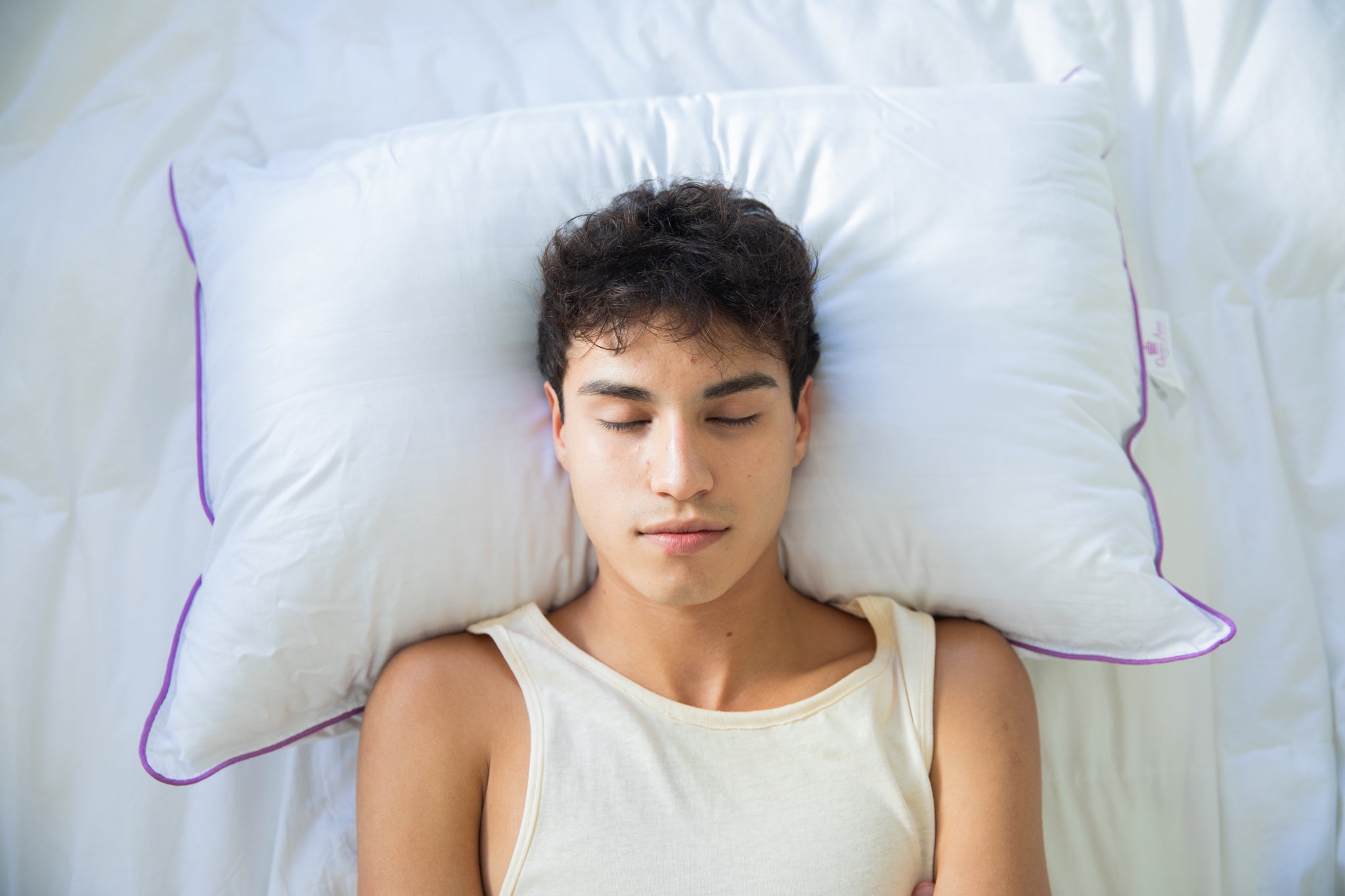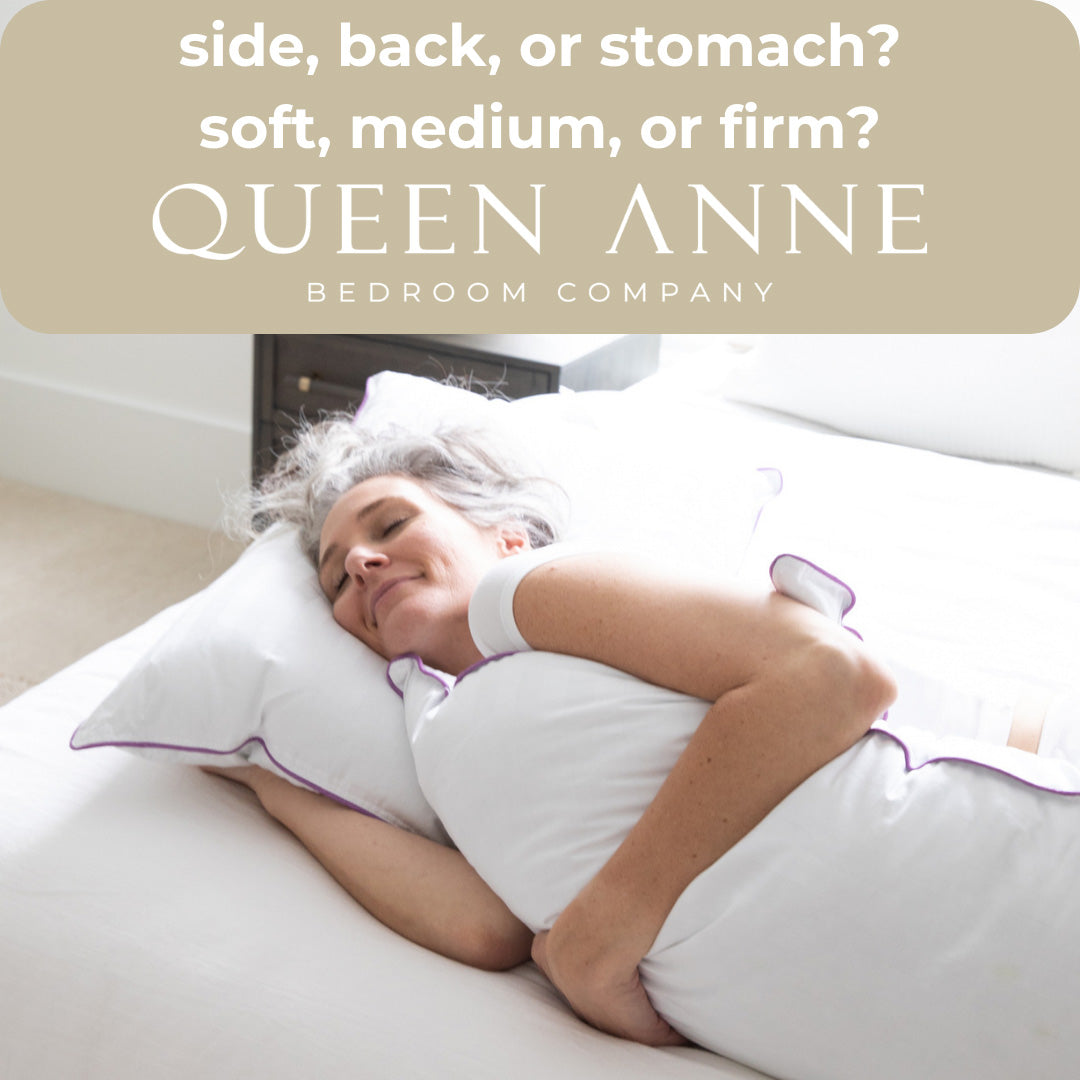
What is an allergy-free pillow?
An allergy-free pillow, or a hypoallergenic pillow, is one that is made to reduce allergens. Allergens can be things like dust mites, mold, pet dander, pollen, and other particles that accumulate in bedding and can lead to allergy symptoms like sneezing, coughing, itching, and nasal congestion.
Hypoallergenic pillows are made with materials that are less likely to include allergens and are less resistant to dust mites and mold growth.
Our Queen Anne hypoallergenic pillows are made with synthetic polyester fibers. These man-made materials are less prone to trapping allergens, as compared to natural materials like feathers and down.
Other common hypoallergenic materials are memory foam, latex, and bamboo.
When looking for an allergy-free pillow, it's essential to read product labels and descriptions to ensure the pillow meets your specific needs. Additionally, it's recommended to use an allergen-proof pillow cover and regularly wash your bedding, including your pillows, to further reduce allergen exposure. If you have severe allergies or specific concerns, consulting with an allergist can help you choose the most suitable pillow for your condition.


